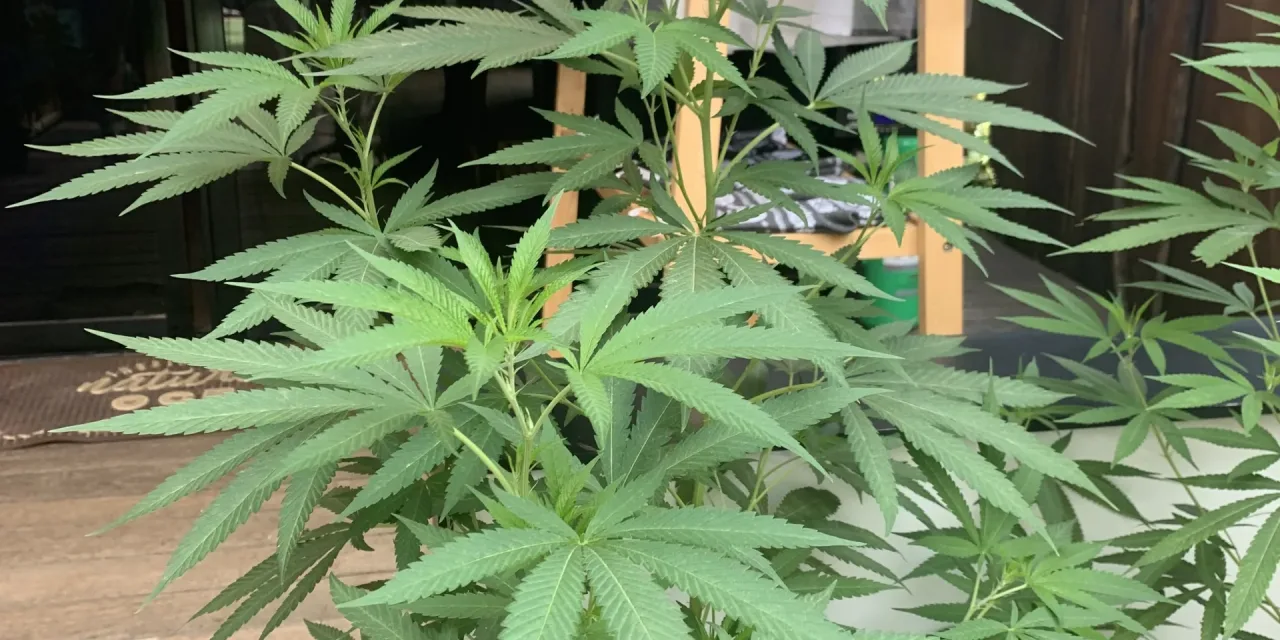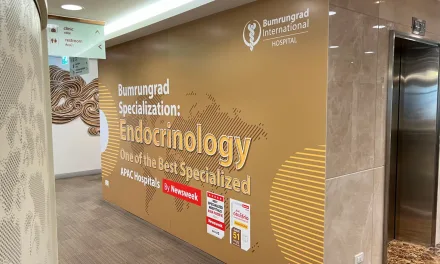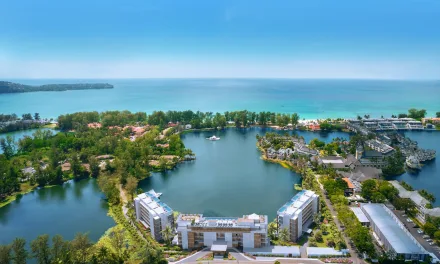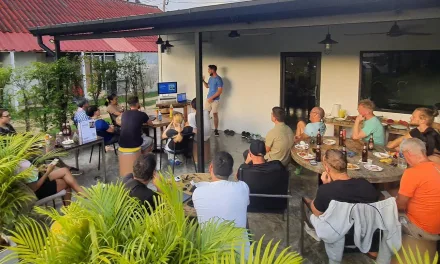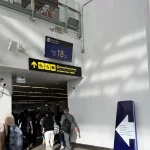By Johnny Carter, Phuket Community Contributor
Discover what’s really happening in Phuket’s Cannabis Market in 2025 as the island shifts from a free-flowing dispensary boom to a more regulated, medically driven landscape. This deep dive breaks down why some shops closed, how others survived, what new cannabis laws mean for tourists and locals, and where the industry is headed next — from luxury wellness experiences to stricter compliance. Perfect for operators, travelers, and anyone curious about Thailand’s fast-changing cannabis scene.
Table of Contents
Introduction – From Boom to Split Market
If you were here in 2022 when Thailand first opened the doors to cannabis, you probably remember how quickly Phuket jumped in. One week there’d be an empty shophouse, and the next it’d be a dispensary with bright lights and a brand-new sign. Some places were run by folks who knew what they were doing; others were clearly testing the waters. For a while, it felt like the whole island was buzzing — money coming in, tourists curious, and locals trying to figure out what this new wave meant for them.
Fast forward three years, and the picture has changed. Walk around Patong, Kata, or Rawai and you’ll see just how much the landscape has shifted. Plenty of those early shops have already packed up, leaving nothing but a “For Rent” banner and a confused landlord. Meanwhile, a smaller group has managed to hold steady, adapting to whatever Phuket throws at them.
What we’re seeing now is a split market — closures on one side, survivors on the other — all happening while new rules hang over everyone’s heads and keep the whole industry on its toes.
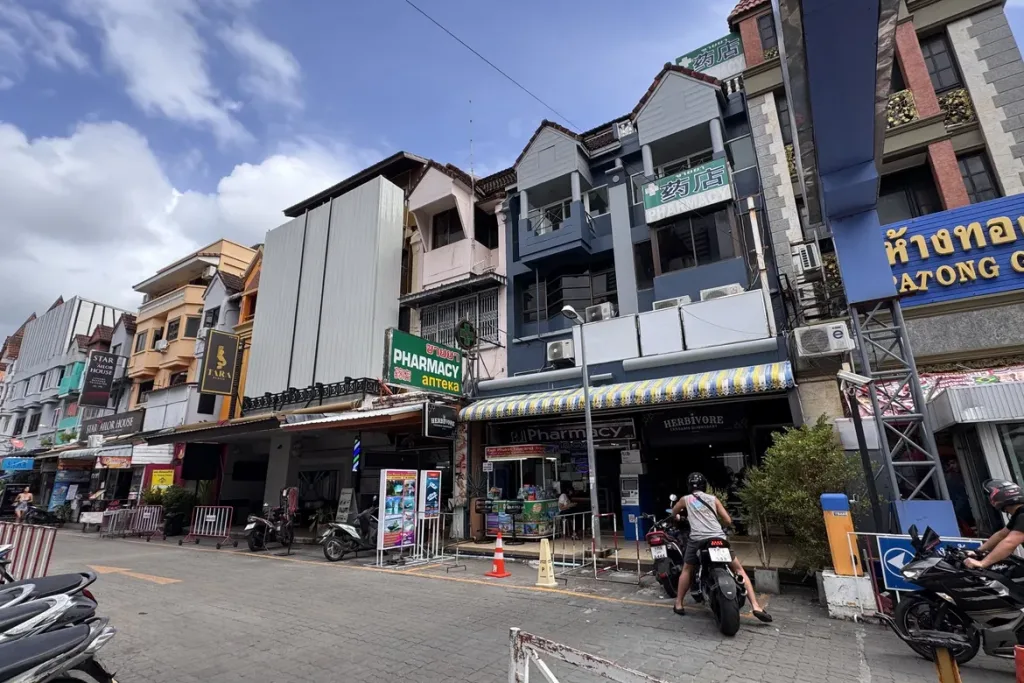
Closures vs Survivors – Why Many Independents Struggle
Spend a morning walking through Patong’s side streets or the quieter lanes in Kata and Rawai, and the pattern becomes obvious. A lot of dispensaries that rushed in during the boom lasted only a few months before shutting their doors. The island changed faster than many expected, and a lot of shops simply couldn’t keep up.
Tourism was a core factor. During the boom, people assumed big-spending visitors would stay consistent. But Phuket saw more budget travelers and shorter stays, and fewer long-term Europeans and expats willing to pay extra for premium flower. Shops that relied only on walk-in tourists — especially those tucked away with no real identity — struggled most.
Pricing pressure didn’t help either. Early on, margins were easy. But as competition grew and supply chains strengthened, prices dropped. Shops without reliable sourcing were hit hard — paying too much for mid-grade product or trying to undercut larger players and losing.
And let’s be honest: a lot of shops looked nearly identical. Same jars, same lighting, same neon leaf on the door. Without a story or a reason to remember a place, everything blended together. Tourists and locals eventually gravitated to shops that felt intentional rather than temporary.
The ones still open? They built character. They created spaces people genuinely wanted to hang out in, paired cannabis with food, coffee, music, wellness, or just consistently good product. They weren’t just dispensaries — they became part of the community. And on an island like Phuket, that’s what keeps a shop alive.
Regulatory Limbo – Between Freedom and Medicalization
Talk to any operator in Phuket right now and the same question pops up: “What’s happening with the new cannabis rules?” With Thailand moving toward a stricter medical-focused framework in 2025 — including prescription-based access and tighter shop licensing — uncertainty hangs over the island like a lingering monsoon cloud.
Everyone knew the free-for-all phase wouldn’t last forever. The Thai government has been signaling its shift toward medical regulation for a while, but the transition period has been anything but clear. Tourists are unsure whether they’re still allowed to buy flower. Shop owners aren’t certain if their existing license will still count. Investors who were loud in 2022 are very quiet now.
Some shops have already exited, unwilling to take risks under the new rules. Others are trying to get ahead — improving compliance, tightening documentation, and redesigning their spaces to fit what a medical-leaning market may require.
What worries operators most isn’t the concept of regulation — it’s the unpredictability. Meeting higher standards takes money, planning, and trained staff. Small shops have tighter margins, and the transition won’t be smooth for everyone. But those prepared to adjust early have a good chance of shaping the next phase of Phuket’s cannabis industry.
For now, the market sits in limbo: cautious, confused, but quietly hopeful that once regulations settle, the businesses built on quality and integrity will remain standing.
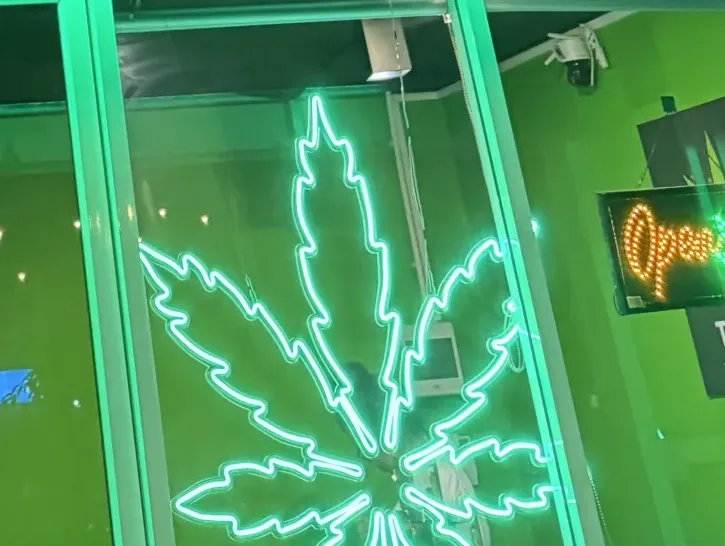
Transition or Bust?
While closures get most of the attention, look around Phuket and you’ll also see something else: a handful of shops doing better now than during the early boom. Their secret isn’t luck — it’s strategy.
These are not the shops that depended on random foot traffic. They realized early that selling cannabis alone wouldn’t guarantee survival. So they built experiences. I’ve stepped into lounges where customers stay for hours because the atmosphere feels good — not just because the product is strong. Some blended cannabis with coffee culture, others with wellness, food, music, or local events.
Trust has become a critical currency too. Successful shops spent time learning their customers — locals, expats, workers from nearby businesses — and consistently delivered the same quality every visit. When people know they can count on a shop, they come back.
Hybrid models are growing fast, weaving cannabis into hospitality, community spaces, and wellness tourism. These aren’t just dispensaries; they’re lifestyle hubs. With multiple income streams, they’re better prepared for unpredictable tourism patterns and regulatory shifts.
The road ahead isn’t simple. Regulations are evolving, competition is tighter, and the market is maturing. But the operators approaching this as long-term craft — thoughtful, community-focused, and resilient — are the ones pointing to what Phuket’s future could look like.
Predictions Ahead – Where Phuket’s Cannabis Market Is Headed
Looking at what’s happening on the ground, a few trends feel pretty clear — not crystal-ball predictions, just the direction things already seem to be heading in.
Consolidation is coming.
A lot of independent shops are going to struggle with the new rules, and bigger, better-funded players will probably start filling the gaps. For small owners, this might mean partnering up or tightening their focus. For workers, it could mean more stable jobs but fewer places hiring. And for everyday customers, you’ll likely see fewer dispensaries but more consistent standards.
Exports are quietly becoming a bigger deal.
Some of the licensed cultivation facilities around Thailand — the ones that are actually meeting proper standards — are preparing to tap into markets like Australia and parts of Europe. You won’t see much of this on the street in Phuket, but it could shift where the best product ends up. It also means more jobs for local growers and processing teams, even if most of the action happens off-island.
Luxury and wellness will find their place.
Let’s be real: Phuket leans naturally toward the premium side of tourism. So it’s not surprising that high-end cannabis experiences — think resorts, retreats, curated lounges — are starting to gain traction. This isn’t about replacing the casual dispensaries; it’s about tapping into travelers who want something polished and intentional. It could bring new opportunities for people working in hospitality, wellness, and events.
Medical is going to take center stage.
The government’s moving toward a medical-first approach, and that’s going to reshape the whole landscape. Shops that adapt — getting proper compliance, upgrading standards, and training staff — will have a future. Those that don’t… probably won’t. For locals, this might mean more legitimate access and clearer rules. For tourists, it might mean a bit more paperwork but a safer, more transparent experience overall.
None of these shifts need to be seen as doom and gloom. They’re just part of the natural maturing of an industry that grew faster than anyone expected. If anything, they show that Phuket still has room to build something stable — something that benefits both the businesses trying to stay afloat and the community watching it all unfold.
Conclusion – Phuket as Thailand’s Green Microcosm
When you zoom out, Phuket’s cannabis journey mirrors Thailand’s bigger story — rapid growth, uneven development, shifting rules, and ongoing adjustment. Everything that’s unfolded nationwide has played out here first, on our beaches, side streets, markets, and neighborhoods.
From Patong’s chaos to Rawai’s chill corners and Cherng Talay’s upscale pockets, you can see how the industry rose, stumbled, and started finding its footing. Behind every shop — whether thriving or gone — are locals, expats, and long-timers trying to create something real. Their choices and struggles reflect the direction Thailand is heading.
Phuket isn’t a test case just because tourists pass through. It’s because the community here pays close attention. We notice what works and what doesn’t. We talk about it — in cafés, on motorbikes, outside 7-Eleven at midnight. This island has a way of revealing what’s sustainable.
Yes, the future is uncertain. Regulations are tightening, and not everyone will make the transition. But there’s opportunity too — a chance to build a more grounded, responsible, and community-shaped cannabis culture.
And if the rest of Thailand wants to know what’s coming next, all they have to do is look right here at what’s unfolding on our little island.

